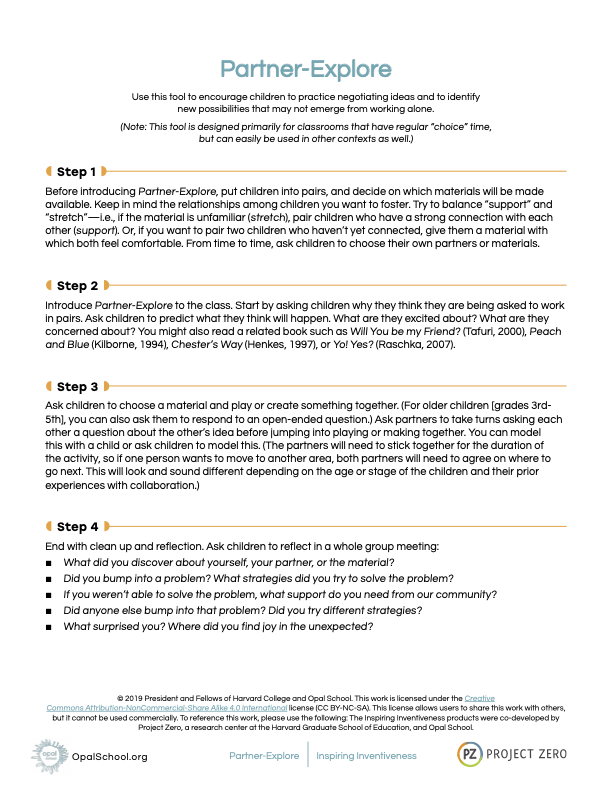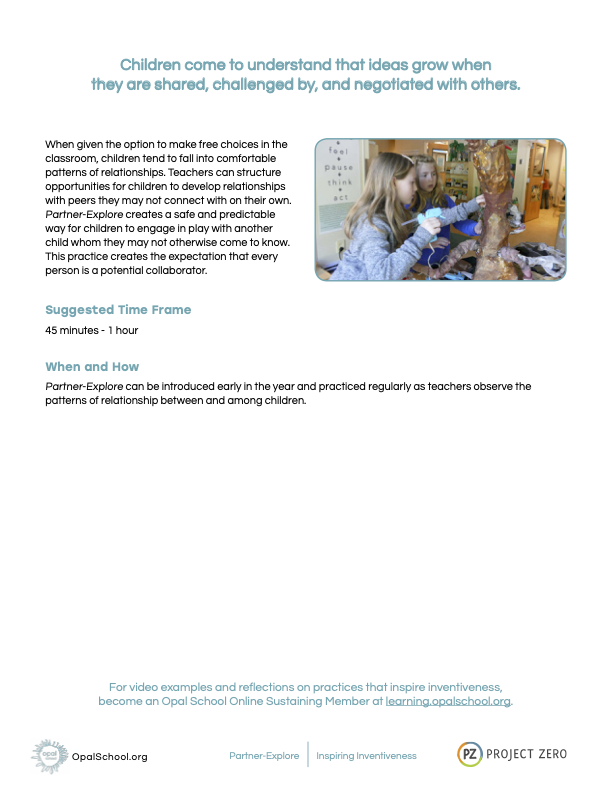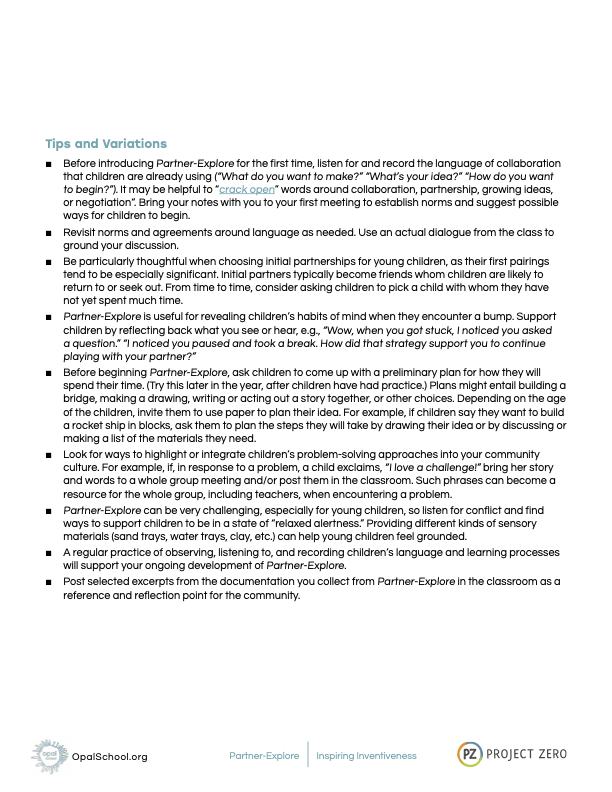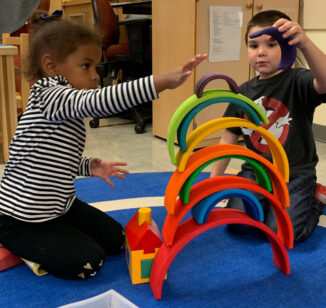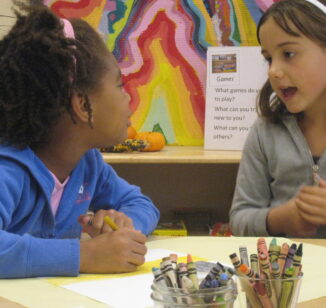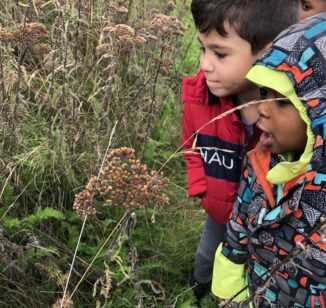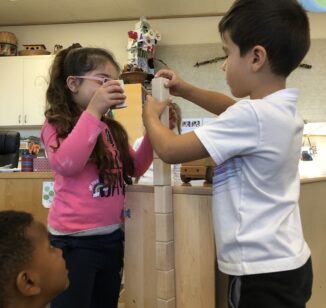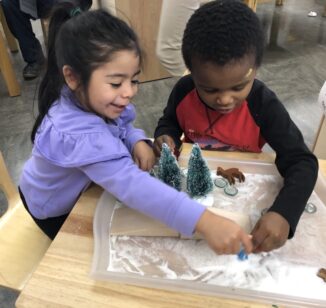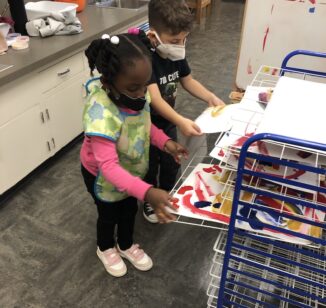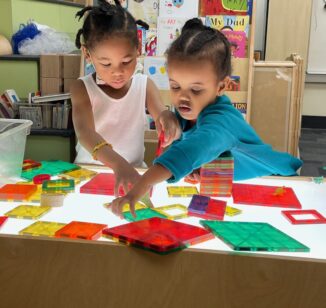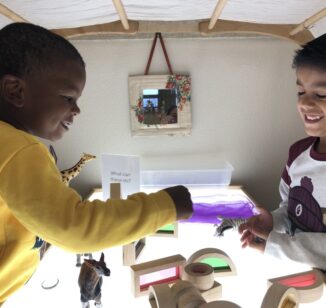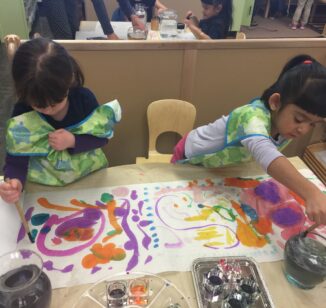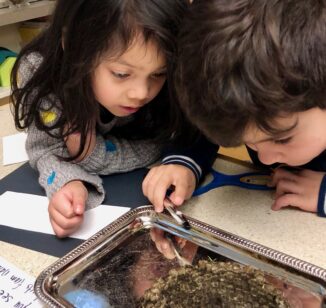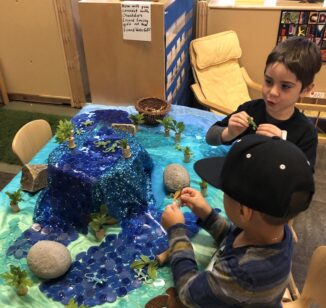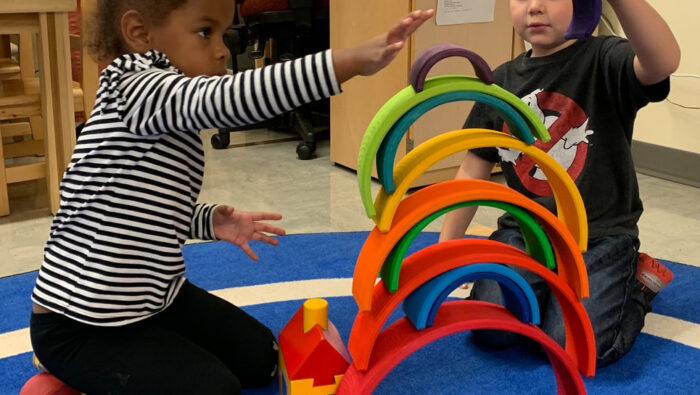
Introducing Partner Explore
(excerpt from the Field Guide Chp.5)
Partner Explore is a workshop approach that focuses directly on creating a community of learners by supporting connections between pairs of children in the early years. The intention of this structure shifts the primary focus from the discovery of what specific materials can do (as found in Materials Explore) to the building of caring and supportive relationships between two children–an excellent way to build and strengthen friendships and practice acts of collaboration.
Many of the Habits of Mind that create a strong community of learners are introduced and practiced during Partner Explore. Examples include: listening to each other, taking turns, communicating ideas, snapping ideas together, showing empathy, resolving conflicts, discovering new strategies and coming up with novel ideas, to name a few. Partner Explore provides a context for the practice of “think, talk and listen” because no one can tell what ideas or plans are in our brains unless we communicate them. It’s a partner’s job to take turns talking and listening so that new ideas show up. This basic practice of turn talking and listening is a critical cornerstone in the foundation of a strong learning community and will serve children well into elementary school when they are assigned to an instructional partner for periods of time.
The intentions of Partner Explore are to:
‣Strengthen relationships and friendships among children
‣Provide opportunities to negotiate, find common ground and work through conflict with a partner
‣Create a classroom list of strategies for working with others that is generated by children
‣Name and share the language of negotiation, collaboration and flexibility
‣Practice Habits of Mind
If you are interested to learn more click this link to purchase the Field Guide.
Purchase the Field Guide
The following tool for Partner Explore comes from Opal School’s two-year collaboration with Project Zero’s Mara Krechevsky and Ben Mardell to articulate an approach that inspires and integrates children’s and teachers’ inventiveness into the school day. This project, funded by The Lemelson Foundation, was guided by research into Opal School’s practices, a study of related literature (including the fields of invention, creativity, and neuroscience), and consultation with other stakeholders in the emerging field of invention education with children of all ages, the above link will take you to this resource found on the opalschool.org site. It can be used to encourage children to practice negotiating ideas and to identify new possibilities that may not emerge from working alone.
